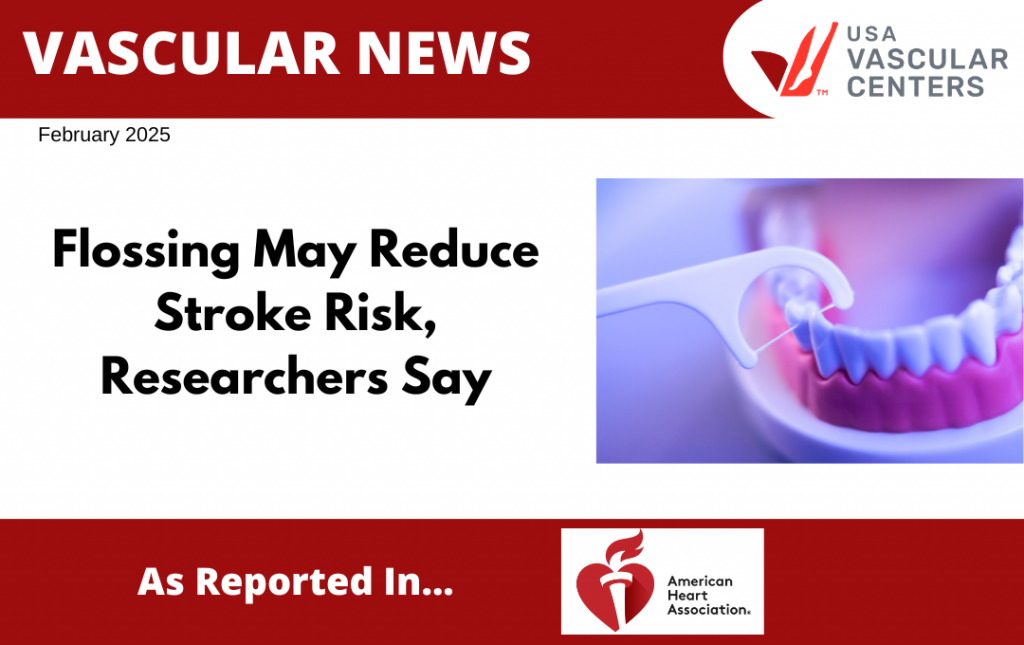The American Heart Association provided an update on an ongoing, decades-long study that suggests dental flossing may lower the risk of stroke and atrial fibrillation (irregular, rapid heartbeat).
While this study focused on flossing’s effects on stroke or aFib, the findings provide insight into other factors that may contribute to the development or worsening of peripheral artery disease (PAD).
The study, which began in 1987, observed the flossing habits of over six thousand individuals. Each participant disclosed whether they had high blood pressure, diabetes, high cholesterol, or smoked. The majority of participants had not had a stroke or aFib before the study.
Over time, about seven percent of participants with poor flossing habits had a stroke. Over 20 percent of those who had a stroke developed it because of the hardening of the arteries, which is a risk factor for PAD. Those who flossed regularly and had routine dental visits were 22 percent less likely to have a stroke. The more frequently a person flossed, the more their risk decreases.
A lack of flossing can contribute to gum disease and tooth decay, which allows harmful bacteria to grow between the teeth and along the gum lines. When the gums become inflamed, it’s easier for the bacteria to enter the bloodstream and contribute to the hardening of the arteries. Additionally, a lack of flossing can contribute to high blood pressure, another risk factor for PAD.
When PAD is left untreated, a patient’s risk of heart attack and stroke increases. Early detection and treatment can mitigate those risks, which include adopting a healthy lifestyle, taking medications to control blood pressure and cholesterol, and minimally invasive treatments.
USA Vascular Centers provides minimally invasive treatments for PAD in over 40 locations nationwide. If you have symptoms of PAD, such as leg pain during physical activity, you can call 888.773.2193 or schedule an appointment online.
For additional reading on the effects of flossing on stroke and aFib risk, read the study here.

